Fatherhood, Muhammad Ali and Moral Courage
A retired Air Force colonel explains how he drew moral courage from arguably the greatest boxer ever and from a pilot who refused to bomb civilians. Antoon says that courage led him to persuade his son not to follow in his footsteps.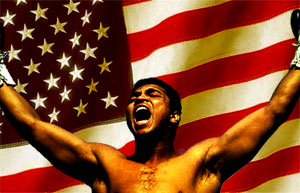
“Individuals have international duties which transcend the national obligations of obedience.” –Nuremberg War Crime Tribunal of 1950
I had never expected to have the opportunity to thank Muhammad Ali, but as I was preparing to pilot a 747 en route to Singapore I heard he was on board. Ali was traveling with his entourage in 2005 to represent New York in its bid for the Olympics. The year before it had been Ali’s courage upon which I reflected as I was forced to confront the issues where fatherhood transcends nationalism. Saying thank you to Muhammad Ali was little enough.
Professor Andrew Bacevich, a West Point graduate and Vietnam veteran whose son was killed in Iraq on Mother’s Day, has written extensively about “poisonous” U.S. foreign policy. What was true in Vietnam is true today in Iraq. An examination of policy between these two disastrous preemptive empire adventures by Nobel laureate Harold Pinter reveals the same.
Ali’s example reaffirmed my decision to speak the truth, a truth that altered my son’s life dreams and translated my private concerns into action. In the spring of 2004, after an exemplary academic and athletic career, my son received a coveted appointment to the Air Force Academy, a step in his lifelong goal to be just like his father. A son to make any father proud, but never more than when out of deep conscience and great moral courage he turned down his appointment to my alma mater.
The son of a career military man myself, I had followed my own father’s example. Fathers, and the choices we make as fathers, matter.
In 1960 Ali won the Olympic gold medal in the light heavyweight division, crushing all opposition; in 1964 he won the world heavyweight championship. In 1967 Ali refused induction into the Army, arguing that the Vietnam War violated his conscience. Ali, arguably the greatest boxer to ever enter the ring, is today fighting Parkinson’s disease.
My time in the Air Force Academy (1966-1970) had coincided with Ali’s refusal to be inducted into the military. Ali served prison time because of an issue of conscience. Our government had wanted Ali not only as a soldier but as a highly visible recruiting tool, the Pat Tillman of his era; instead his fight raised the consciousness about what was really happening in Vietnam. My military career — academy graduate, Vietnam combat tours, decades of observation as a career officer and finally critical analysis — as in the case of Bacevich, was now confronting my responsibilities as a father.
I went down to first class on the airliner to find the man who had floated like a butterfly and stung like a bee. Ali is still a big man, dwarfing those around him. I knelt so I could look him right in the eye and told him I considered him a hero not for his world championship title fights but for having the moral courage to refuse induction into the Army during Vietnam. Ali’s hand shook with tremors as he extended it to me; he nodded. He has a hard time speaking now but I could see he was moved by what I had told him. His battle of conscience has ended; for many of us those battles are still to come.
When I graduated from the Air Force Academy I did not question orders. Later, I chose to believe that our presence in Vietman was necessary for America’s “national interest.” I was wrong. It did not come to me in one day, but over a period of years — the result of a gut-wrenching look at U.S. military operations during my lifetime.
I was in the Philippines for jungle survival training in 1974 when I bumped into Capt. Don Dawson, a B-52 pilot, on my way to the officer’s club. Don and I had been in the same squadron at the academy. Don was always one of the good guys, quiet, laid back and unflappable. He had been at Clark Air Base for nearly a year under house arrest at that point because he refused to continue to do carpet-bombing missions into Cambodia. “I can’t do this anymore” was what he told his commander — and what he told me. He was put under house arrest awaiting court-martial for refusing to participate. For Don the final straw had been the annihilation of an entire wedding party.
I attended the Air Force Academy 2004 orientation with my son, a visceral event causing my catharsis. “Leadership” had been replaced with “warriorship.” Secular spiritual inclusion had been replaced with aggressive dominionist evangelicalism. Reports of Abu Graib torture, rendition, secret “gulag” prisons around the world, depleted uranium, aerial bombing of urban areas with napalm and cluster bombs and more were surfacing. Iraq déjé vu Vietnam. Added to this is Bush’s Praetorian Guard — a private mercenary force with no government accountability. As a father I realized that the truth, all of the truth, was something I owed my son. If a child cannot trust his father, or mother, for honesty and integrity, then whom can he trust?
I realized I had been less than forthcoming with my own son. He had no idea what Vietnam and Iraq were really about or what he would be expected to do. That night we talked late. His only ambition had been to attend the academy and fly Air Force fighters. During those long hours he asked searching questions, transforming both of us through a dialogue on conscience and moral courage that still continues.
That autumn my son began his freshman year at Ohio State University. Today he is a different man, a man who sees further and deeper than I did at his age.
The common thread of Muhammad Ali’s decision to refuse induction, of Don Dawson’s refusal to continue carpet-bombing civilians and even my son’s decision to decline his coveted appointment to the academy is that moral courage rose above faux nationalism.
Pulitzer Prize-winning author Chris Hedges recently conveyed to my son, Ryan, a message reinforcing moral courage and the necessity to always keep questioning authority — never take for granted what you are told by those in authority. Integrity is your most precious asset.
Every father should speak these words to his children. There can be no greater gift for a father than to know he has instilled in his children these values.
Moral courage is what allowed Muhammad Ali to “float like a butterfly, sting like a bee”!
David Antoon is a Vietnam veteran and retired U.S. Air Force colonel, a husband and father who worries about what kind of world his children, and all children, will inherit. He fears the damage to America’s reputation and credibility due to hypocritical, immoral and illegal foreign policy supporting military occupations around the globe will not be repaired in his lifetime.
Your support matters…Independent journalism is under threat and overshadowed by heavily funded mainstream media.
You can help level the playing field. Become a member.
Your tax-deductible contribution keeps us digging beneath the headlines to give you thought-provoking, investigative reporting and analysis that unearths what's really happening- without compromise.
Give today to support our courageous, independent journalists.
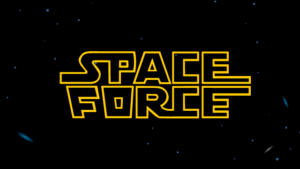
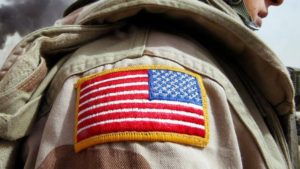
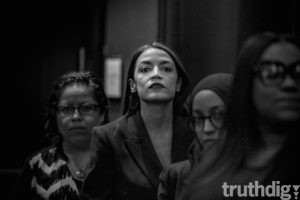
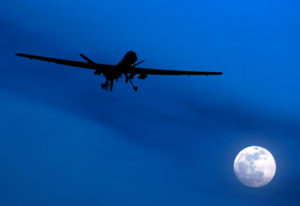
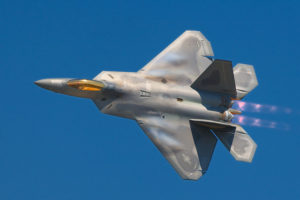
You need to be a supporter to comment.
There are currently no responses to this article.
Be the first to respond.